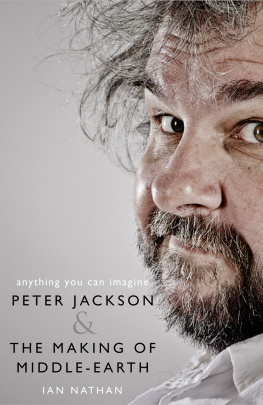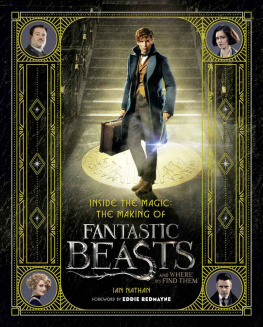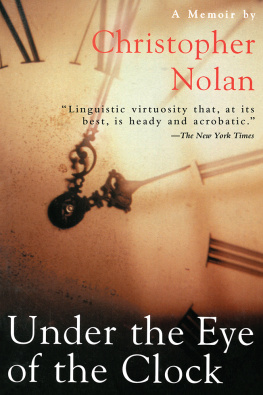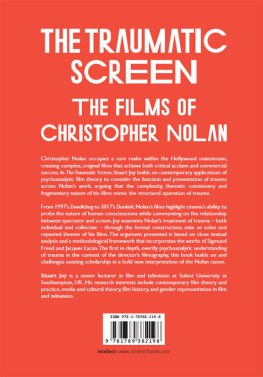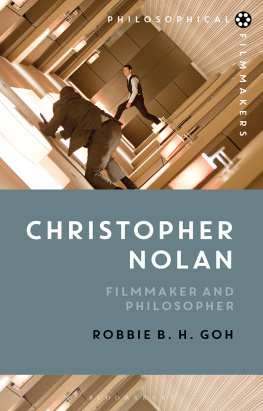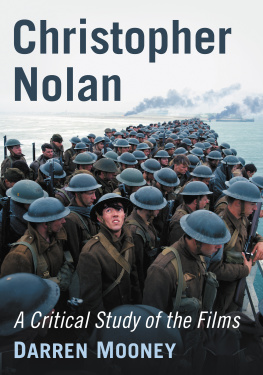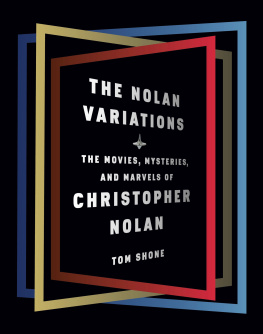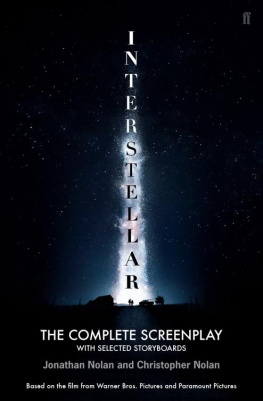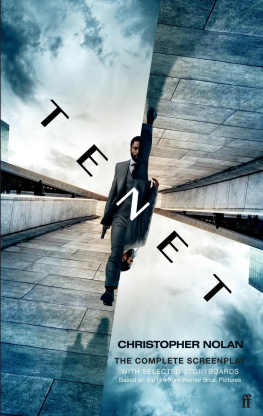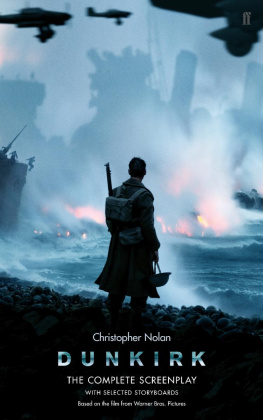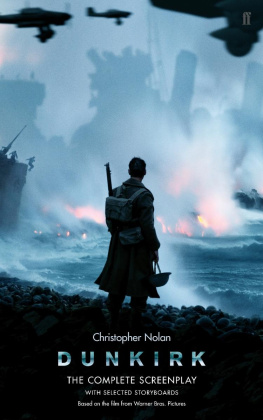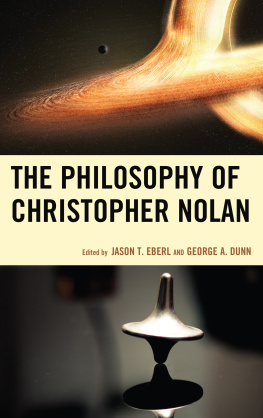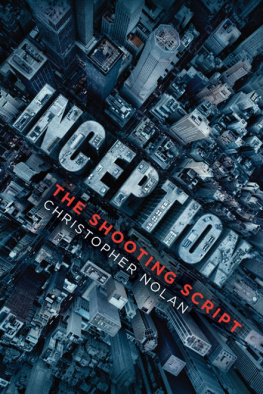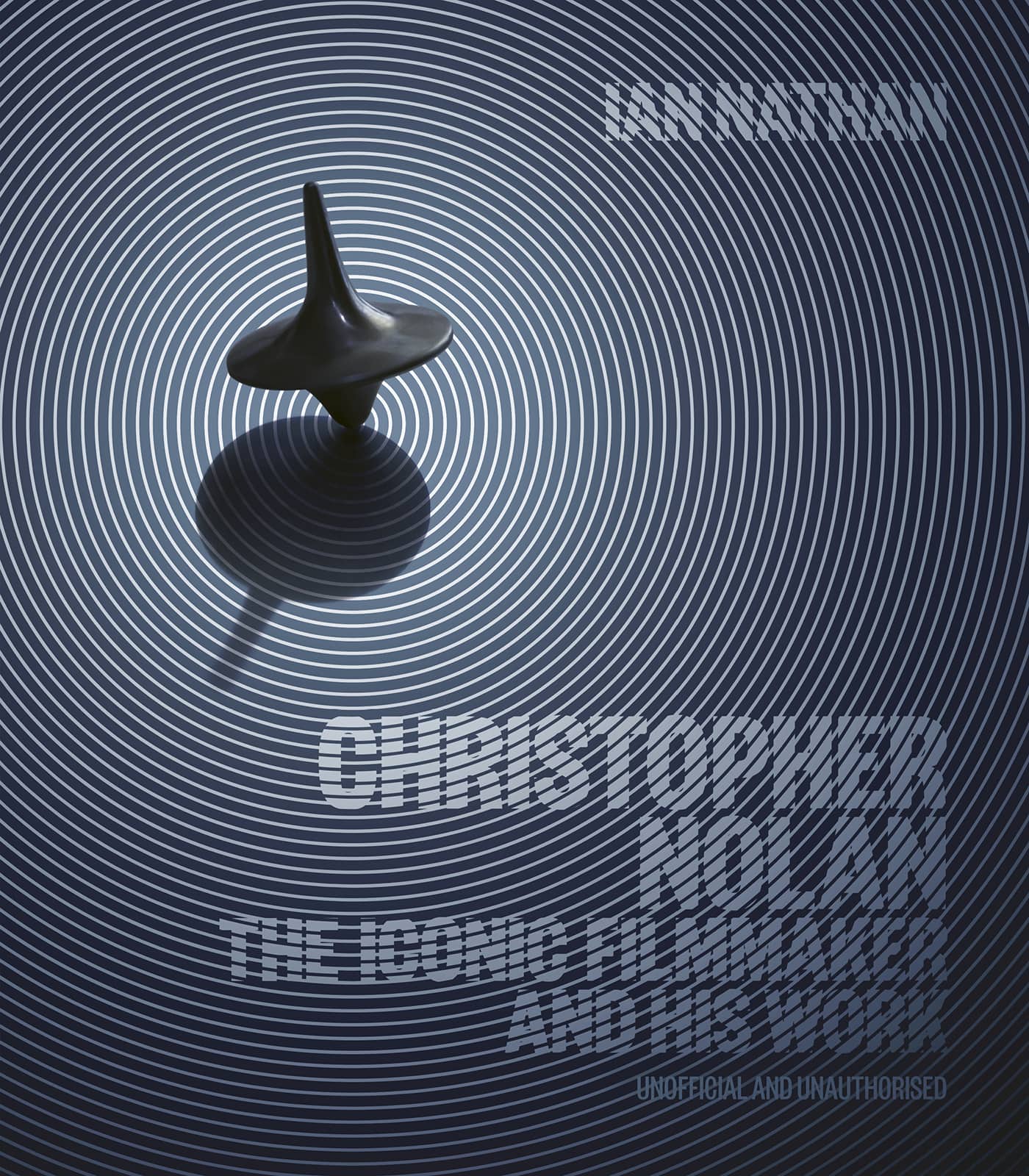Contents
Page List
Guide
Cover
CHRISTOPHER NOLAN
THE ICONIC FILMMAKER AND HIS FILMS
Ian Nathan
UNOFFICIAL AND UNAUTHORISED
CONTENTS
INTRODUCTION
What is the most resilient parasite? Bacteria? A virus? An intestinal worm? An idea. Resilient... highly contagious. Once an idea has taken hold of the brain its almost impossible to eradicate.
Cobb, Inception
C hristopher Nolan doesnt make sense. And that is exactly how he likes it. In twenty-three years and through twelve films, he has defied the laws of Hollywood by creating startling, original genre pieces that have revelled in their own complexity, confounding every maxim by which the studios hope to appeal to the widest audience. And yet he does that too. Cinemas fill on the possibility of the next Nolan film. Whatever form it might take.
Nolan never stoops to conquer. He believes in his audience. That we are up to the epic journey he will set before us. He believes in the highest common denominator.
Put it another way, Nolan has done the impossible pursued a personal, idiosyncratic, often brilliant, and consistent style within the studio system. Or in even simpler terms, he has never compromised. And never had to raise his voice, developing a calm, measured, above all dignified approach to dealing with Hollywood that runs contrary to a grand history of directors scratching and clawing their way to artistic expression. Then who would argue with him? He might be the only one who really knows what is really happening in his film.
Even assembling a basic description of the director sets a challenge before the prospective writer. He defies categories, even nationalities he is half British, half American, and neither precisely. He spent his formative years shuttling between the antique rituals of boarding school in England and the freedoms of the family home in Chicago. Travelling between time zones in every sense. He crosses the streams of artist and scientist, entertainer and provocateur, lone wolf and one of the cool set. He has defined millennial Hollywood, yet stands apart from the crowd.
The great mystery of Nolan, compared with the other directors from the school of seriousness that arose in the nineties to great acclaim calculating visionaries like Steven Soderbergh, David Fincher, Darren Aronofsky, Kathryn Bigelow, and the Wachowskis: those who could be classified as his peers is his popularity.
Of course, the Dark Knight trilogy stands as the central achievement of his career thus far, taking a populist form like the comic-book movie and filling its boots with gravitas. Contrary to Hollywoods habitual excesses, Nolan wanted to know how superheroes and supervillains might spring out of the real world. He moved into the realms of the blockbuster without ever losing his identity. And in doing so, redefined an entire industry.
Press Nolan for the truth behind his riddles the memory at the heart of Memento, the spinning top at the end of Inception, just what exactly is going on in Tenet and his lips remain sealed. How he smiles, like Mona Lisa. Maintaining the enigma is all important. There is pleasure, he insists, in not knowing the answer. We must simply trust that he does. Yet here lies a delightful contradiction. Like so many of his characters we are driven to find the truth. Even as he implores us all to simply sit back and watch, we thrill to the challenge of deciphering his labyrinthine plots (which do often feature labyrinths). Graphs and diagrams, references to obscure tracts of philosophy and science, and extended tutorials proliferate on the internet from ardent Nolanologists. If the director puts years into his strategizing his screenplays, they take corresponding years to unpick what he has wrought.
The unassuming icon Christopher Nolan faces the cameras at the Cannes Film Festival in 2018.
Guiding lights: filmmaking legends Stanley Kubrick (above, on the set of A Clockwork Orange) and Steven Spielberg (above right, on the set of Close Encounters of the Third Kind) helped shape Christopher Nolans entire view of cinema.
Nolan is truly a director of the digital age with its layers unpeeling onto layers, its paranoid urges and knots of conspiracy, its urge to know more and more.
But it is also about how his films look and sound and ultimately feel. He sees film as an immersive experience, often shooting in his beloved IMAX so we cannot escape from the screen. Yet he is also a traditionalist. He holds onto the old ways: celluloid, cinema going, the practical effect over the digital solution. He builds extraordinary sets ready to spin reality on its head, allowing his valiant actors to touch the world of the story, taking his groundbreaking stunts to the streets.
Nolan wears his inspirations proudly. The directors who showed him the way: the revolutionary spirit of Fritz Lang, the intellectual rigour of Stanley Kubrick, the visual mastery of Ridley Scott, the soaring storytelling of Steven Spielberg, and the hypnotic modernism of Michael Mann all tug at his muse. And there are many more. Each film is made from a tapestry of film history. Genre fascinates him. He mixes the elements of film noir, science fiction, comic-book and period pieces into a new alloy one we call Nolanesque. Impossible to define fully, it is unmistakable as soon as you see it. As soon as you feel it and hear it. Sound is so vital to his holistic approach: music entwines with audio effect and image, creating a sense of both alarm and euphoria.
He also calls upon beloved novelists who saw the world differently, from Charles Dickens to Jorge Luis Borges, Raymond Chandler, Graham Swift, and Carl Sagan. He seeks out scientists like astrophysicist Kip Thorne to show him the nature of the universe. To fix his flights of fancy according to universal laws.
Over the following pages, film by film, I will contextualize Nolans worlds the inspirations, the ambitions, the ever-more-challenging shoots, and the success and also go some way to getting to the secret heart of his stories. So I should issue a spoiler warning, though it is all but impossible to spoil the films even describing what happens presents the writer-decoder with a unique challenge.
Fundamentally, his work is united in an exploration of perception and time, and drawn to the flame of subjectivity what finally can we accept as real? Nolan is attempting to peer beneath the surface of this thing we call civilization to locate the secret machine that drives the world. And the closer you look, the more you realize that his films are on some level also about the nature of film how the medium can be configured to express the existential angst of Memento and Insomnia, the dreamworld of Inception, or the swelling dread of Dunkirk


